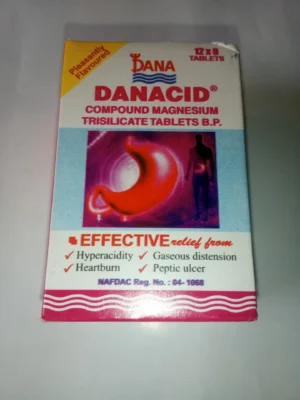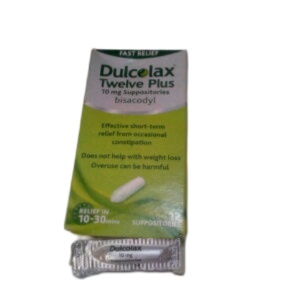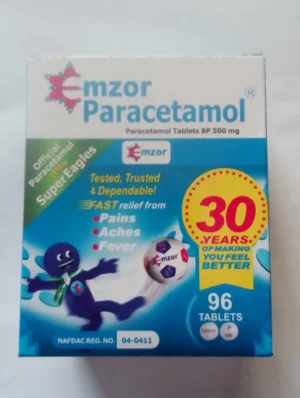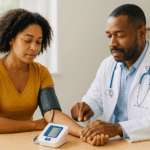A Simple Guide to a Healthy Pregnancy: What Every Expecting Mother Should Know

Please note: This article gives basic advice only. If you’re feeling unwell or have any health concerns, please don’t self-diagnose. You can talk to one of our pharmacists online — we’ll help you understand what’s really going on and guide you to the safest medicines and care for you and your baby.
Contents
- Understanding your body during pregnancy
- Daily habits that make pregnancy easier and healthier
- Common pregnancy symptoms and how to handle them
- A. Morning sickness
- B. Heartburn
- C. Constipation and piles
- D. Colds and nasal stuffiness
- E. Pain and fever
- The vitamins and supplements your body needs
- Foods and habits to avoid during pregnancy
- Your checkups and important tests
- Everyday questions: work, sleep, exercise, and intimacy
- When to see a doctor immediately
- Safe medicine use during pregnancy
- Final thoughts
1. Understanding Your Body During Pregnancy
Pregnancy brings amazing changes — but it also means your body works harder than ever. Here’s what’s going on:
- Your hormones rise to help your baby grow, but they also cause morning sickness, heartburn, and constipation.
- Your blood volume increases, which can make you feel more tired but helps feed your baby.
- Your immune system becomes gentler, so you may catch colds more easily.
- Your joints loosen as your body prepares for childbirth, which can sometimes cause back or hip discomfort.
All of these are normal, but understanding them helps you take better care of yourself.
2. Daily Habits That Make Pregnancy Easier and Healthier
The little things you do every day make a huge difference:
Eat Smart
- Eat small meals often instead of 2 or 3 large ones — it helps control nausea and heartburn.
- Include vegetables, fruits, whole grains, beans, eggs, fish, or lean meat in your meals.
- Choose healthy snacks like bananas, groundnuts, or yoghurt.
- Drink enough water every day (6–8 cups).
Stay Active
- Try gentle exercise such as walking and stretching. It helps digestion, improves sleep, and strengthens your body for childbirth.
Rest Well
- Sleep on your left side from the second trimester — it improves blood flow to your baby.
- Use pillows to support your back and between your knees for comfort.
Avoid Harmful Substances
- Stay away from alcohol, smoking, shisha, or herbal bitters — they can harm your baby.
- Limit caffeine to one small cup of coffee or two cups of tea per day.
Stay Clean and Healthy
- Brush and floss daily — gum problems are common in pregnancy.
- Attend all antenatal visits — they help monitor both you and your baby’s health.
3. Common Pregnancy Symptoms and What to Do
A) Morning Sickness
How it feels: Nausea (especially in the morning), vomiting, and sensitivity to smells.
What helps:
- Eat dry crackers before getting out of bed.
- Have small, frequent meals.
- Sip water slowly throughout the day.
- Avoid oily or spicy foods.
- Try ginger tea or ginger sweets to calm your stomach.
Helpful medication
If you can’t keep food or fluids down for more than 24 hours, see a doctor immediately.
B) Heartburn
How it feels: A burning sensation in your chest or throat after eating or lying down.
Why it happens: The muscles that keep stomach acid in place relax during pregnancy.
What helps:
- Eat smaller meals.
- Avoid lying down right after eating.
- Avoid spicy, oily, or acidic foods.
- Sleep slightly upright using pillows.
Recommended medication:
C) Constipation and Piles
How it feels: Difficulty passing stool, straining, or pain around the anus.
What helps:
- Drink more water.
- Eat fibre-rich foods like beans, papaya, oats, and vegetables.
- Don’t ignore the urge to go.
- Stay active — walking helps a lot.
Helpful medication:
D) Colds and Nasal Blockage
How it feels: Runny or blocked nose, sneezing, or mild sore throat.
What helps:
- Rest, drink warm fluids, and use a saline nasal spray.
- Take non-drowsy antihistamines for allergies.
- Use a decongestant spray only for a few days if needed.
Helpful medication:
E) Pain and Fever
What helps:
- Paracetamol is safe in pregnancy when used correctly.
- Avoid ibuprofen, diclofenac, or naproxen unless told otherwise by a doctor.
- Rest, stay hydrated, and keep cool.
Helpful medication
4. Vitamins and Supplements You Need
Folic Acid
Take 400–800 mcg daily from early pregnancy — it prevents birth defects in the baby’s brain and spine.
Iron
Prevents tiredness and anaemia. Take it with orange juice for better absorption and avoid tea or coffee at the same time.
Calcium and Vitamin D
Keeps your bones strong and helps your baby’s bones grow properly.
Omega-3 (Fish Oil)
Supports your baby’s brain and eye development.
Iodine
Helps with thyroid health and baby’s brain development.
If you’re unsure which supplement is right for you, our pharmacists can help you choose one that fits your health and your budget.
5. Foods and Habits to Avoid
- Undercooked eggs, meat, or unpasteurised milk.
- Street food that’s been sitting out too long.
- Fish with high mercury levels.
- Alcohol, herbal bitters, or unknown supplements.
- Limit caffeine to one cup of coffee or two cups of tea per day.
6. Your Checkups and Tests
- First visit: Confirm pregnancy, check blood group, and start folic acid.
- Regular visits: Every month until 7 months, every 2 weeks till 9 months, then weekly until delivery.
- Scans: Early pregnancy scan, and one around 20 weeks to check your baby’s growth.
- Vaccines: Tetanus booster, flu shot, and whooping cough vaccine if advised.
7. Everyday Questions
Can I Work?
Yes, but take breaks, stretch, and drink water often. Avoid heavy lifting.
Can I Sleep on My Back?
Try to sleep on your left side — it helps blood flow to the baby.
Can I Exercise?
Yes! Gentle walking or prenatal yoga is good. Avoid anything that risks falling or injury.
Can I Have Sex?
It’s safe if your doctor hasn’t warned against it (such as if there’s bleeding or risk of early labour).
Can I Travel?
Yes, but avoid long trips late in pregnancy. Always wear your seatbelt below your belly.
8. When to See a Doctor Immediately
Go to a hospital or call your doctor if you notice:
- Heavy bleeding or fluid leaking.
- Severe abdominal pain.
- Fever that doesn’t go away.
- Pain when urinating.
- Severe headache, blurred vision, or swelling in your face and hands.
- You haven’t felt your baby move for a long time.
9. Safe Medicine Use
- Always ask before taking any medicine, even herbs or teas.
- Don’t take two products that both contain paracetamol.
- Avoid ibuprofen and strong painkillers unless prescribed.
- Keep a list of all medicines you’re taking.
10. Final Thoughts
Pregnancy is one of life’s most beautiful journeys — and while it comes with new experiences and changes, most challenges can be managed with simple care, good habits, and the right support.
If you ever feel unsure about a symptom or medicine, talk to our pharmacists online. We’ll guide you through it, help you choose safe and affordable options, and make sure you and your baby stay healthy.
You may also like
- A Practical Guide to Weight Management, Weight Loss, and Nutrition
- A Guide to Preventive Health & Everyday Wellness
- Women’s Health, Made Simple: A Simple Guide for Healthy Living
- Men’s Health, Made Simple: A Guide to Feeling and Living Better
- A Simple Guide to a Healthy Pregnancy: What Every Expecting Mother Should Know








